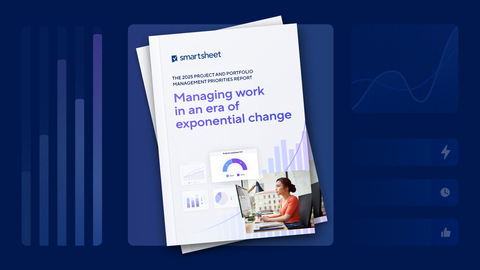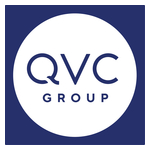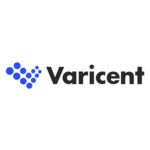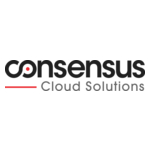New data from Smartsheet shows that high frequencies of internal and external disruptions are negatively impacting business outcomes
Smartsheet 2025 Project and Portfolio Management Priorities Report: Teams are Fatigued, and Executives Need to Pay Attention
Media Contact
Lisa Henthorn
pr@smartsheet.com
Today, Smartsheet (NYSE:SMAR), the AI enhanced enterprise g
rade work management platform, released new research on the effects of workplace changes on project and portfolio management (PPM) professionals in the 2025 Project and Portfolio Management Priorities Report. The highly-anticipated data report reveals that 92% of PPM professionals struggle to adapt to workplace changes, such as frequent shifts in priorities, gaps in communication and collaboration, and limited access to critical data—to the detriment of business outcomes.
This press release features multimedia. View the full release here: https://www.businesswire.com/news/home/20241211120124/en/

Smartsheet 2025 Project and Portfolio Management Priorities Report (Photo: Business Wire)
“When disruption occurs, businesses often expect their project teams to adapt and sustain the same pace and level of excellence. As a result, teams are exhausted," said Miya McClain, VP, Product Management, at Smartsheet. “But change also presents an opportunity for organizations to innovate and become more agile. Amid ongoing workplace disruptions, leaders have a choice: maintain the current way of working and face team burnout or adopt new approaches and leverage tools and technology to increase collaboration and communication, democratize data accessibility, and streamline workstreams to improve employee engagement, gain efficiencies and achieve growth.”
Key insights from the report include:
-
Change fatigue is negatively impacting key business metrics
- Nearly all (97%) surveyed PPM professionals report experiencing either technology disruptions, organizational shifts, larger industry fluctuations or macroeconomic
- Nearly half of all respondents stated that this harms profitability, and more than 35% said it led to customer dissatisfaction.
-
A structured approach for responding to uncertainty impacts success
- Nearly a quarter of organizations (23%) surveyed lack a standardized process for adapting to change.
- Executives (87%) were likelier to report that their team has a structured approach to change than individual contributors (67%), signaling executives’ overconfidence in how their organizations manage disruption.
- Two-thirds (66%) of respondents report needing more visibility into the necessary data to pivot when the unexpected happens.
- Based on the report, the two most critical factors for responding to change include: 1. Standardized guidelines, processes, and systems, and 2. Flexibility for teams to react to unforeseen developments.
-
Organizations need innovative thinking and technology to adapt
- Most PPM professionals (87%) surveyed agree that their team would be more effective if they were better equipped to anticipate and adapt to the unexpected instead of being reactive.
- More than half (58%) of PPM professionals surveyed say their current tools are inadequate. Furthermore, nearly all (99%) of PPM professionals surveyed say their organization would benefit from better technology that helps them adapt.
- The PPM professionals surveyed reported that capabilities related to data analytics and visualization (53%), team collaboration (53%), workflow and project automation (51%), and AI (50%) would help them embrace, manage, and adapt to disruption.
Harnessing Hurdles
The research uncovered several strategies that could help teams adapt to workplace changes, including:
- Establishing a detailed and structured approach to managing uncertainty with guardrails for governance
- Leveraging flexible and innovative tools that allow the right balance between standardization, experimentation, and innovation
- Supporting organization-wide visibility to empower leaders to make the most effective business decisions
“Organizations are functioning with limited personnel, technology and support, requiring employees to assume more work with limited resources,” said Dion Hinchcliffe, Vice President and Practice Lead, CIO, Futurum Group. “Critical projects are often derailed in this environment when a workplace disruption occurs, but work management technology can be critical in bridging resource gaps and navigating changes. Furthermore, integrating AI into work management platforms, like Smartsheet, allows employees to uplevel their work to focus on more strategic and impactful projects, quickly accelerating the time to value of the investment. Forward-thinking organizations are increasingly considering the best way to invest in this space.”
To read the Smartsheet 2025 Project and Portfolio Management Priorities Report, click here.
About Smartsheet
Smartsheet is the modern enterprise work management platform trusted by millions of people at companies across the globe, including over 85% of the 2024 Fortune 500 companies. The category pioneer and market leader, Smartsheet delivers powerful solutions fueling performance and driving the next wave of innovation. Visit www.smartsheet.com to learn more.
Report Methodology
Independent sources of Product and Portfolio Management (PPM) professionals were invited to participate in an online survey. A total of 1,488 qualified individuals with project and portfolio management job responsibilities at companies with more than 200 employees in the United States completed the survey. Participants included a mix of ages, job levels, job functions, company sizes and industries. The survey was fielded in September 2024.
View source version on businesswire.com: https://www.businesswire.com/news/home/20241211120124/en/
 Business wire
Business wire 











Add Comment